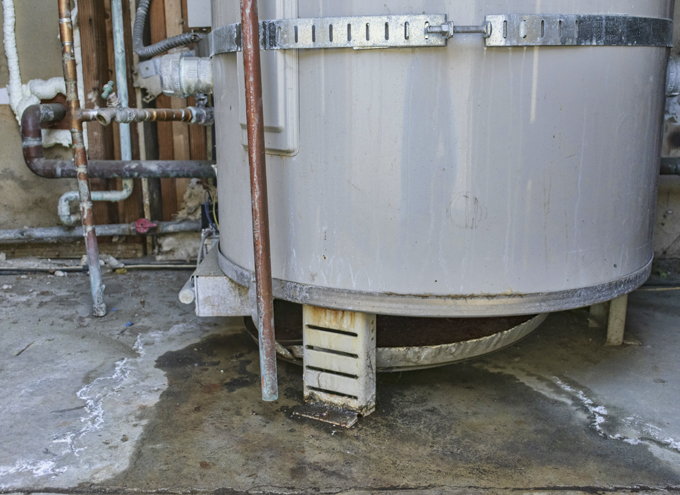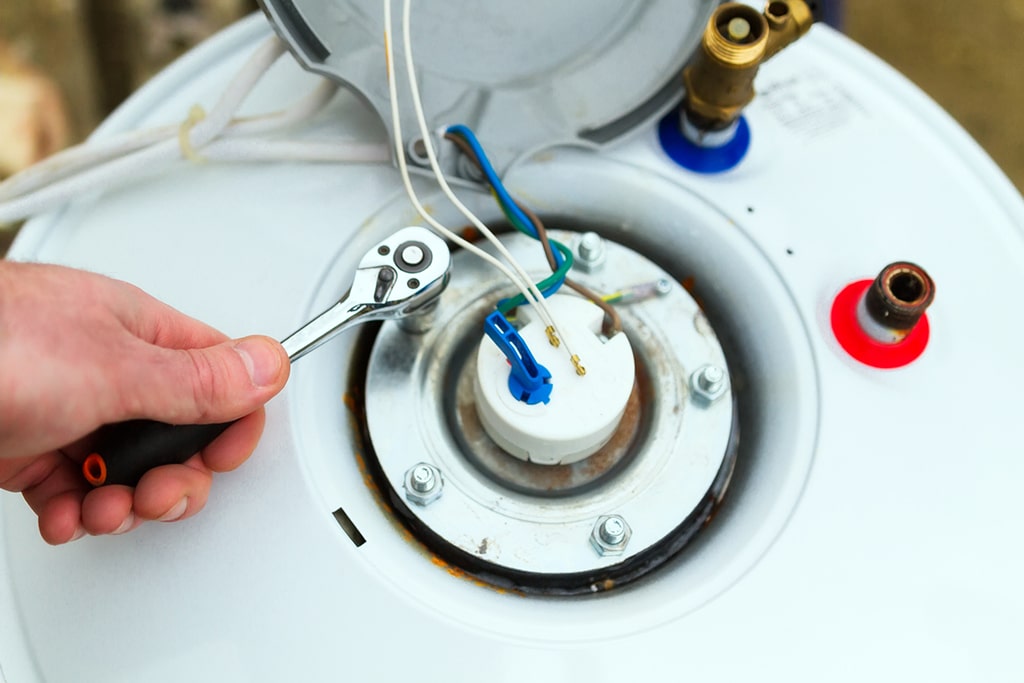Crucial Guidelines for Homeowners Handling Broken Heating Units
Crucial Guidelines for Homeowners Handling Broken Heating Units
Blog Article
What are your thoughts about How to Avoid a Broken Hot Water Heater?

Whether it is located in the cellar or a separate room, busted water heating systems can create anxiety. Having no hot water supply is also problematic.
Call the Plumber
After doing the very first 2 safety actions, you need to call your plumber to come as soon as possible to repair a burst hot water heater. Remember that your unit will certainly not just conk out dramatically overnight. There are usually indicators that your aging water heater has debris buildup in the interior. Take note of the following:
Rather, as soon as you detect these indications, have a specialist come to check your water heater container. Normally, water heaters have a life-span of regarding 8 to 12 years.
Cut Off the Cold Water Supply
Cut off the tanks tap water supply from the resource. When your storage tank is in good problem, the cool water quits filling up when the container is complete. If you can not find it or reach it, you have to transform off that main water supply line outside your residential property.
Shut Off Power Source
Prior to calling the plumber, closed off a gas water heater by turning the temperature level dial. This will certainly avoid electrocution, especially if there is a leak as water is a conductor. Normally, the home heating aspect shuts off when the water strikes a certain temperature.
Clean Up Home
After calling the plumber, file damages by making note as well as pictures so you can declare your property owner's insurance policy. From there, start the prompt cleanup. Obtain any vital valuables to stop further soaking. After that, remove any type of standing water to avoid mold and mildew and mildew growth. If you have a submersible water pump, use that to drain the water. Or else, the standard pail method will certainly also function. Attempt to wipe out whatever, including wall surfaces and also baseboards. Keep them running to maintain air flowing if you have an electric follower and also dehumidifier. This will assist hinder mold growth.
Keep in mind, if you see any type of problems with your hot water heater, call the pros right away. You can not take this issue gently due to the fact that a defective thermostat can increase water temperature to a dangerously high level, resulting in unexpected burns. A broken heating unit stress safety valve can likewise trigger an explosion. For finest results, obtain an annual check so your device obtains inspected, cleaned, drained pipes, as well as filled up, ensuring optimal performance.
After doing the initial 2 security steps, you need to call your plumber to come right away to take care of a burst water heating unit. Instead, as soon as you spot these signs, have actually a professional come to evaluate your water heating unit tank. Before calling the plumber, closed off a gas water heating system by transforming the temperature dial. If you have a completely submersible water pump, utilize that to drain the water. Keep in mind, if you observe any kind of issues with your water heater, call the pros right away.
Is My Water Heater Broken?
The Water Heater is Old
No appliance will last forever. This includes a home’s water heater. During its lifespan, residents are going to face a situation where a new water heater installation will be necessary. The biggest problem with this is that most people are not sure when their water heater expires. Not knowing this can lead to serious risks if the unit begins to act up due to old age.
Most makes and models of water heaters will last between eight and 10 years. While 10 years is the age when water heater replacement is highly recommended, the need to replace the unit may occur before this time or after. If the unit doesn’t show any symptoms of a problem, it is a good idea to replace it at the 10-year mark (from the manufacture date).
Some of the symptoms that indicate a new unit is needed include rusting, leaks, noises, and a failure to heat up the water. Also, note that not all units have a 10-year life expectancy. The main exception to this rule is that a gas unit will last for six to eight years.
Rusty Heater Inlet Valve or Water
While steel is the strongest material on earth, it does have a weakness – rust. If corrosion occurs on a steel surface, it will begin to spread and eat through the steel in certain areas. On water tanks and pipes that are made of steel, rust is a warning sign of an impending leak.
The issue for many is trying to figure out if the rust is coming from the water heater or the pipes that lead to the faucet. If rust is seen, it is a clear indication that water heater service from the professionals is needed.
If rusty water appears out of the faucets in the bathtub or sink, it likely means a rusty water heater. If there is rust near the water inlet or the pressure relief valve, rust has likely developed inside the tank. If tap water appears rusty, it may be an issue with the pipes.
Strange Sounds from the Water Heater
Are there strange sounds coming from the tank? As a water heater gets older, rumbling noises may develop and get louder and louder as the water in the tank heats up. In homes where large amounts of hot water are used, the issue is likely going to be even more obvious when more serious issues arise. If there is a strange or loud noise coming from the unit, it is probably because of sediment buildup. A good way to remedy this problem is by flushing the heater. If this does not work, then a new unit may need to be installed.
Leaks
As a water heater gets closer to the end of its useful life, there is a higher chance there will be water around the tank. If there is water, this usually means leaks are occurring. Based on where the unit is located in the home, a leak may result in serious property damage.
Leaks are usually caused by expansions in the metal tank. The expansions occur as time passes and as the inside body of the tank is exposed to multiple heating cycles per day. When a fracture forms, the gap will be slight enough to hold the water in; however, in more serious situations, this will not be the case. If the tank is idle, the water will not leak but when the metal expands during each heating system, small amounts of water will get through the gap.

Hopefully you liked our article on Water Heater Burst. Thanks for taking the time to read through our blog post. Do you know about another individual who is intrigued by the subject? Feel free to share it. I treasure reading our article about Broken Water Heaters.
Tailored care available. Report this page